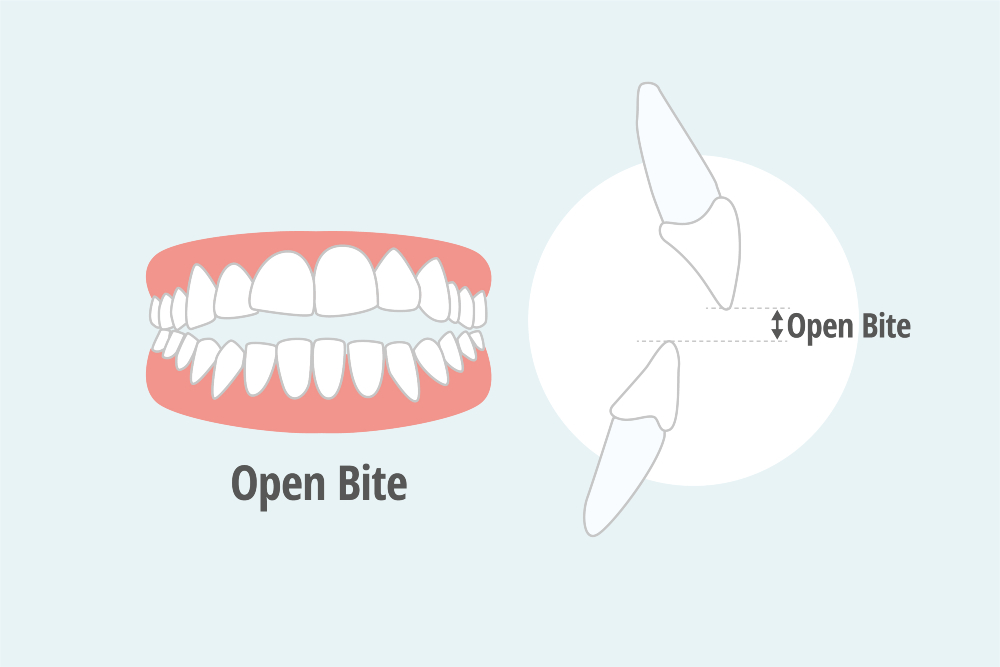Open Bite: Symptoms, Causes, And Treatment Options
- Home
- Open Bite: Symptoms, Causes, And Treatment Options

When most people say “open bite,” they’re referring to an anterior open bite. People who have an anterior open bite have front upper and lower teeth that slant outward so they don’t touch when the mouth is shut. If you have a posterior open bite, your back teeth don’t touch when your mouth is closed.
An open bite is a type of malocclusion, which means the teeth aren’t aligned properly when the jaws are closed. This could be causing various issues for you, like:

Once you visit the orthodontist for a comprehensive exam and diagnosis, you can discuss treatment options. Expert orthodontists can treat open bites with a variety of treatment; they will offer a professional recommendation based on your specific diagnosis and needs.
Be sure to seek an expert opinion from a licensed orthodontist in a specialized orthodontic practice, who can provide cutting-edge technology and is up-to-date with all treatment modalities.
Braces are an effective, convenient, and affordable method for correcting an open bite, when used in the hands of an expert orthodontic provider. There are several braces options, including metal, ceramic, and lingual (Incognito®) braces – depending on your diagnosis, your orthodontist may be able to treat you with any of these tools. Braces are extremely reliable, easy to maintain, and create beautiful results: many people have corrected their open bites with braces.
Invisalign is another option for closing open bites. Invisalign is effective and convenient when used by an experienced doctor. They have gained popularity for treating a wide variety of orthodontic issues, and can successfully correct open bites for teenagers and adults alike. Compared to traditional braces, Invisalign has actually proved to be more effective for treating open bites, so long as it is used as a tool by an expert orthodontist. Seek treatment from a highly-credentialed orthodontist: Diamond Plus or Diamond Invisalign Providers have the most experience with this treatment technique and can provide the highest-quality care, as well as lower prices and faster treatment times.
For some severe cases of open bite, oral surgery might be necessary: this is rare, and only for very complex cases that cannot be treated by orthodontic intervention alone. If your case requires surgery, your orthodontist will refer you to an oral surgeon. Oral surgery and orthodontic care together can achieve the optimal results for these severe open bites.